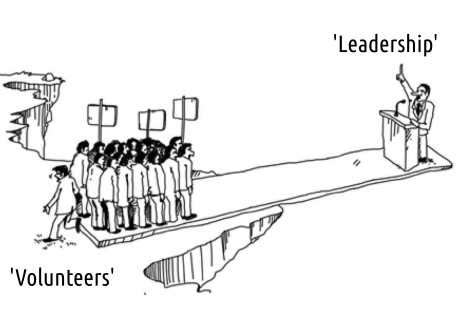You really couldn't have missed it: on 17 to 19 January 2020 a forum was organized to discuss the Future of Joomla. Attendees consisted of 'top community members'. During and after the forum a lot of online discussion was and is taking place: Blog posts, GitHub discussions, Tweets, Facebook discussions. Everybody is chipping in to share their vision for a bright future for Joomla or for reflecting on the current state and what is wrong with it.
Joomla is a free and Open Source Content Management System (CMS) for publishing web content. Over the years Joomla has won several awards. It is built on a Model-View-Controller web application framework that can be used independently of the CMS and allows you to build powerful online applications.
Joomla is used all over the world to power millions of websites of all shapes and sizes, having been widely used by enterprises, governments, and individuals to build web applications. Joomla has thousands of free extensions and templates allowing users to customize their sites to fit their specific needs. It is one of the most popular website software since the platform is user friendly, extendable, multilingual, accessible, responsive, search engine optimized and so much more.
I love this process as this is where voice is given to the community
The love, passion and commitment I see in these discussions give me the feeling that a bright future for Joomla is ahead. but there are obvious also a lot of obstacles.
One of the biggest obstacles i see comes from my years of experience in change management, Servant Leadership and interim-management assignments in large (enterprise) organizations: Personal Leadership (or rather the lack of)
(Personal) Leadership
No matter what vision is set for Joomla, how cool the roadmap will be, it all comes down to (Personal) Leadership.
When it comes to Leadership, there is only one kind of Leader: the person that is followed. When nobody is following you, you can never be a leader. Leadership is not defined by roles and badges!
So the future of Joomla is not defined by leadership, but it is defined by followers: you and me.
What makes me a follower?
In (what I call: dinosaur) organizations there is the 'perception' that you can make people follow you: because you are in the position of power (you are the boss), you are in control (you decide who gets what) and there is a sense of urgency (when you don't follow me or do what I tell you to do, you will risk losing it all). All of that being managed with an organization chart, defined roles and processes.
In (dinosaur) organizations 'leadership' is convinced that through power, control and sense of urgency they can 'create' followers that will do everything that is needed.
But that is not how it works and when it works, it will only get you and your organization so far: you cannot 'buy' loyability, commitment and passion! And it are those treats that will make the difference between flourish or demise!
What's in it for me?
The question everybody asks himself conscious or subconscious before committing to do something is: What is in it for me?
Based on your answer, you join others (team-up in a community) with which you have the best chance of fulfilling that objective, you take the role that is needed (follower or leader) and where your specific skill set is best serving the community (and your) objective.
The drivers to get things done in a community is not power, control and sense of urgency, but strength, trust and sense of longing. Your part in doing what is needed comes from knowing that you need others and others need you, that it boils down to (equality in) relations and that there must be a balance in reciprocity (there is no future when you are only taking and never giving).
So the day a product manager tells me how to run releases are the day I resign as release lead. I don't know if it's what Joomla needs or not - it might be - but it would no longer be enjoyable as a volunteer for me - Joomla Development volunteer on twitter
Biggest challenge for a bright future of Joomla: Personal Leadership
- Am I able to answer the what's in it for me question?
- Am I able to be honest about why I joined the community?
- Am I able to take a different role or leave the community if the what's in it for me changed or if what is needed can be better done by someone else?
- Am I able to build a relation with others in the community based on equality and reciprocity?
- Am I able to stay away from power, control and sense of urgency and embrace strength, trust and create a sense of longing
So questions remains:
